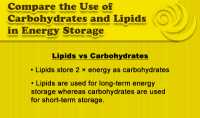Have you ever wondered why some people seem to effortlessly maintain their weight while others struggle?
The answer often lies in a complex process called metabolism. It is essentially the rate at which your body burns calories. It's influenced by various factors, including genetics, age, and lifestyle choices.
Understanding this is important for achieving and maintaining a healthy lifestyle. When your metabolism is working efficiently, your body can burn calories at a healthy rate, supporting weight management and overall well-being.
In this blog, we will explore the intricate relationship between metabolism and healthy living.
(more…)
Let's talk about something we all think about but rarely understand deeply—obesity and metabolism. There's a lot of noise out there, and it's easy to get lost in the myths. So, let's cut through the confusion. Get ready to get real information about how our bodies work and why we gain weight.
Obesity: An Overview
Obesity isn't just about carrying a few extra pounds; it's a chronic condition characterized by an excessive accumulation of body fat. It's typically measured using the Body Mass Index (BMI). A BMI of 30 or higher indicates obesity. This excess body fat can have serious consequences for your health. It increases the risk of many health conditions, including type 2 diabetes, heath disease, and varicose veins. Seeking a nutrition and considering a vein treatment in Philadelphia can provide targeted treatments for obesity-related issues.Causes of Obesity
Some of the factors that increase the risk of obesity include: - Poor diet - Lack of physical activity - Genetics - Psychological factors (more…)
Author Interviews, JAMA, Sugar, Weight Research / 29.09.2020
Greater Understanding of How High Fructose Corn Syrup Enhances Metabolic Risk Factors
MedicalResearch.com Interview with:
Kimber L. Stanhope PhD RD
Department of Molecular Biosciences
School of Veterinary Medicine
University of California
Dr. Bettina Hieronimus PhD
Institute of Child Nutrition
Max Rubner-Institut,
Federal Research Institute of Nutrition and Food
Karlsruhe
MedicalResearch.com: What is the background for this study?
Response: Sugar consumption is associated with increased body weight and other metabolic diseases. Fructose in particular seems to be detrimental to health as it causes higher increases in blood lipids compared to glucose.
Our study assessed the effects of sugar consumption on cardiometabolic risk factors. We compared the effects of consuming glucose, two different doses of fructose or high fructose corn syrup (HFCS) with a non-caloric sweetener. Our subjects were healthy young individuals who drank three sweetened beverages per day over the course of two weeks.
(more…)
Author Interviews, Endocrinology, Weight Research / 04.05.2020
People With More Brown Fat May Burn Fuel More Efficiently
MedicalResearch.com Interview with:
Florian Keifer, M.D., Ph.D
Associate Professor of Medicine
Division of Endocrinology and Metabolism
Department of Medicine III
Medical University of Vienna
MedicalResearch.com: What is the background for this study?
Response: Brown fat, in contrast to white fat, burns significant amounts of chemical energy through heat production. In numerous animal models the activation of brown adipose tissue (BAT) increases energy expenditure and counteracts weight gain. Therefore BAT has been established as a promising target in the fight against obesity and related metabolic disorders. In humans, BAT can be activated by moderate cold exposure, however the function and relevance of BAT are incompletely understood. Using PET scans we identified two groups of individuals those with and without active BAT and studied their differences in energy expenditure and blood fatty acid composition. (more…)
Author Interviews, Brigham & Women's - Harvard, Weight Research / 09.11.2018
Eat Carbs in the Morning, Fat at Night?
MedicalResearch.com Interview with:
 Kirsi-Marja Zitting, Ph.D.
Instructor in Medicine, Harvard Medical School
Division of Sleep and Circadian Disorders
Departments of Medicine and Neurology
Brigham and Women’s Hospital
Boston, MA 02115
MedicalResearch.com: What is the background for this study?
Response: This study is a follow-up study to our previous study where we found that chronic insufficient sleep together with chronic jet lag is associated with adverse changes in metabolism, including increase in blood sugar levels (Buxton et al. Science Translational Medicine, 2012). The present study focuses on the influence of the time of day on metabolism, which has not been investigated in humans independent of the effects of sleep, physical activity and diet.
(more…)
Kirsi-Marja Zitting, Ph.D.
Instructor in Medicine, Harvard Medical School
Division of Sleep and Circadian Disorders
Departments of Medicine and Neurology
Brigham and Women’s Hospital
Boston, MA 02115
MedicalResearch.com: What is the background for this study?
Response: This study is a follow-up study to our previous study where we found that chronic insufficient sleep together with chronic jet lag is associated with adverse changes in metabolism, including increase in blood sugar levels (Buxton et al. Science Translational Medicine, 2012). The present study focuses on the influence of the time of day on metabolism, which has not been investigated in humans independent of the effects of sleep, physical activity and diet.
(more…)
 Kirsi-Marja Zitting, Ph.D.
Instructor in Medicine, Harvard Medical School
Division of Sleep and Circadian Disorders
Departments of Medicine and Neurology
Brigham and Women’s Hospital
Boston, MA 02115
MedicalResearch.com: What is the background for this study?
Response: This study is a follow-up study to our previous study where we found that chronic insufficient sleep together with chronic jet lag is associated with adverse changes in metabolism, including increase in blood sugar levels (Buxton et al. Science Translational Medicine, 2012). The present study focuses on the influence of the time of day on metabolism, which has not been investigated in humans independent of the effects of sleep, physical activity and diet.
(more…)
Kirsi-Marja Zitting, Ph.D.
Instructor in Medicine, Harvard Medical School
Division of Sleep and Circadian Disorders
Departments of Medicine and Neurology
Brigham and Women’s Hospital
Boston, MA 02115
MedicalResearch.com: What is the background for this study?
Response: This study is a follow-up study to our previous study where we found that chronic insufficient sleep together with chronic jet lag is associated with adverse changes in metabolism, including increase in blood sugar levels (Buxton et al. Science Translational Medicine, 2012). The present study focuses on the influence of the time of day on metabolism, which has not been investigated in humans independent of the effects of sleep, physical activity and diet.
(more…)
Author Interviews, Diabetes, Heart Disease, Lancet, Metabolic Syndrome, Weight Research / 01.06.2018
Obese Women Remain at Risk For Heart Disease, Even When Metabolically Healthy
MedicalResearch.com Interview with:
Nathalie Eckel, MSc
German Diabetes Center
Düsseldorf, Germany
MedicalResearch.com: What is the background for this study?
Response: Obesity is associated with metabolic disorders such as diabetes, high blood pressure and hypercholesterolemia, and with a higher risk of cardiovacular disease compared to normal weight. However, there is also the phenomenon of the so-called "metabolically healthy obesity" and "metabolically unhealthy normal-weight". So far it has been unclear how metabolic risk factors change over time in metabolically healthy people depending on body weight and what cardiovascular disease risk results from this.
(more…)
Author Interviews, Diabetes, Metabolic Syndrome, Weight Research / 21.02.2017
One Fatty Meal Results In Metabolic Disturbances
MedicalResearch.com Interview with:
Prof. Dr. Michael Roden
Director, German Diabetes Center (DDZ)
Leibniz Center for Diabetes Research
at Heinrich Heine University Düsseldorf
Chair/Professor, Endocrinology and Metabolic Diseases
Heinrich Heine University Düsseldorf
Director, Department of Endocrinology and Diabetology
University Hospital Düsseldorf
Düsseldorf, Germany
MedicalResearch.com: What is the background for this study? What are the main findings?
Response: The prevalence of obesity, type 2 diabetes and non-alcoholic fatty liver disease (NAFLD) continue to increase at an alarming rate. Their occurrence has been associated with intake of saturated fats, for example that of palm oil. This study aimed to shed light on how dietary fat initiates metabolic changes which lead to the aforementioned diseases. To this end we provided 14 young healthy volunteers an oral dose of palm oil or placebo randomly, in a crossover manner, with an 8-week washout period between each intervention.
One acute dose of palm oil leads to insulin resistance in the main insulin sensitive tissues of the body: the liver, skeletal muscle and adipose tissue. In the liver, it also results in increased accumulation of triglycerides, increased production of glucose from lipid and amino acid precursors (rather than from glycogen), and increased energy metabolism, as denoted by increased hepatic adenosine triphosphate (ATP) content. Moreover, a similar experiment in mice revealed that one dose of palm oil differentially regulates genes and pathways which are known or suspected regulators of NAFLD, such as lipopolysaccharide (LPS), members of the peroxisome proliferator-activated receptor (PPAR) family and nuclear factor kappa-light-chain-enhancer of activated B-cells.
(more…)
Author Interviews, Nutrition, Sugar, Weight Research / 23.01.2017
Type of Sugar, Not Just Amount, Influences Metabolic Effects
MedicalResearch.com Interview with:
Dr. Marta Alegret
Department of Pharmacology, Toxicology and Therapeutic Chemistry
Pharmacology Section
School of Pharmacy and Food Sciences
University of Barcelona
MedicalResearch.com: What is the background for this study?
Response: In humans, an excessive intake of sugars has been linked to the development of metabolic disturbances, and therefore to an increase in the risk for cardiovascular diseases. Specifically, increased consumption of simple sugars in liquid form, as beverages sweetened with high fructose corn syrup or sucrose, has been linked to obesity, insulin resistance and type 2 diabetes. However, two questions remain unresolved: what is/are the underlying molecular mechanism(s) linking these metabolic alterations to cardiovascular diseases? Are the adverse cardiovascular and metabolic effects of sugar-sweetened beverages merely the consequence of the increase in caloric intake caused by their consumption?
To answer to these questions, we performed a study in female rats, which were randomly assigned to three groups: a control group, without any supplementary sugar; a fructose-supplemented group, which received a supplement of 20% weight/volume fructose in drinking water; and a glucose-supplemented group, supplemented with 20% weight/volume glucose in drinking water.
(more…)
Author Interviews, Exercise - Fitness, Mental Health Research / 07.09.2015
Exercise Did Not Improve Mitochondrial Content in Healthy Brains
MedicalResearch.com Interview with:
 Eric A.F. Herbst MSc Ph.D. student
Human Health and Nutritional Sciences
University of Guelph
Guelph, ON
Medical Research: What is the background for this study? What are the main findings?
Response: Many neurological diseases result in declines in mitochondrial content and function in the brain. Therefore, the purpose for this study was to determine if mitochondrial content could be enhanced in the brain through exercise, as previously demonstrated in skeletal muscle, and also to determine if similar exercise-signaling pathways are activated between the two tissues in the process.
This study found that despite reproducing similar findings in skeletal muscle, acute and chronic exercise did not activate traditional signaling mechanisms (AMPK, ERK1/2, CAMKII, P38) in either the cortex or striatum of the brain, nor did it result in sustained increases in mitochondrial respiration, DNA copy number, or protein content.
(more…)
Eric A.F. Herbst MSc Ph.D. student
Human Health and Nutritional Sciences
University of Guelph
Guelph, ON
Medical Research: What is the background for this study? What are the main findings?
Response: Many neurological diseases result in declines in mitochondrial content and function in the brain. Therefore, the purpose for this study was to determine if mitochondrial content could be enhanced in the brain through exercise, as previously demonstrated in skeletal muscle, and also to determine if similar exercise-signaling pathways are activated between the two tissues in the process.
This study found that despite reproducing similar findings in skeletal muscle, acute and chronic exercise did not activate traditional signaling mechanisms (AMPK, ERK1/2, CAMKII, P38) in either the cortex or striatum of the brain, nor did it result in sustained increases in mitochondrial respiration, DNA copy number, or protein content.
(more…)
 Eric A.F. Herbst MSc Ph.D. student
Human Health and Nutritional Sciences
University of Guelph
Guelph, ON
Medical Research: What is the background for this study? What are the main findings?
Response: Many neurological diseases result in declines in mitochondrial content and function in the brain. Therefore, the purpose for this study was to determine if mitochondrial content could be enhanced in the brain through exercise, as previously demonstrated in skeletal muscle, and also to determine if similar exercise-signaling pathways are activated between the two tissues in the process.
This study found that despite reproducing similar findings in skeletal muscle, acute and chronic exercise did not activate traditional signaling mechanisms (AMPK, ERK1/2, CAMKII, P38) in either the cortex or striatum of the brain, nor did it result in sustained increases in mitochondrial respiration, DNA copy number, or protein content.
(more…)
Eric A.F. Herbst MSc Ph.D. student
Human Health and Nutritional Sciences
University of Guelph
Guelph, ON
Medical Research: What is the background for this study? What are the main findings?
Response: Many neurological diseases result in declines in mitochondrial content and function in the brain. Therefore, the purpose for this study was to determine if mitochondrial content could be enhanced in the brain through exercise, as previously demonstrated in skeletal muscle, and also to determine if similar exercise-signaling pathways are activated between the two tissues in the process.
This study found that despite reproducing similar findings in skeletal muscle, acute and chronic exercise did not activate traditional signaling mechanisms (AMPK, ERK1/2, CAMKII, P38) in either the cortex or striatum of the brain, nor did it result in sustained increases in mitochondrial respiration, DNA copy number, or protein content.
(more…)
Author Interviews, Diabetes, Weight Research / 13.05.2015
It Really Is Harder For Some People to Lose Weight
MedicalResearch.com Interview with:
Martin Reinhardt, MD
Postdoctoral Fellow
PECRB, NIDDK, NIH
Phoenix, AZ 85016
Medical Research: What is the background for this study? What are the main findings?
Dr. Reinhardt: It can be very difficult for some people with obesity to lose weight despite great efforts. There is an immense deal of individual variability in weight loss success. Beyond differences in diet adherence, it is not clear what causes this variability in weight loss.
Through a study conducted at our facilities at the National Institutes of Health in Phoenix, Arizona, we have now shown that individual differences in biology – more precisely, differences in the amount of energy bodies use during fasting – make it difficult for certain obese people to lose weight.
(more…)
Author Interviews, Diabetes, Lancet, Sleep Disorders, Weight Research / 26.03.2014
Sleep Loss Associated with Obesity and Diabetes
MedicalResearch.com Interview with: Prof. Dr. Bernd Schultes Endocrinology and Diabetes Internal Medicine eSwiss Medical & Surgical Center Brauerstrasse 97 9016 St. Gallen Schweiz MedicalResearch.com: What...




